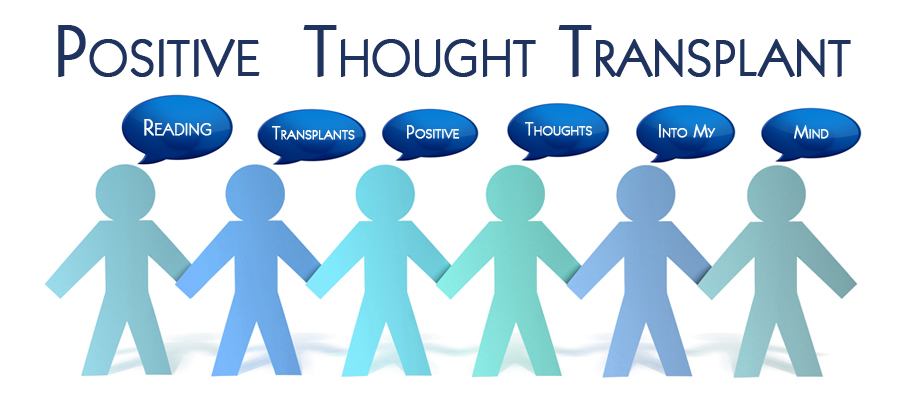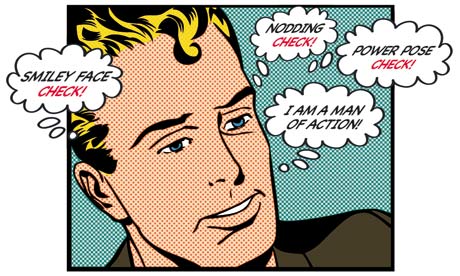In the Bhagavad Gita, the concept of performing duty without attachment to the fruit of action is referred to as “Nishkama Karma.” Here are some key shlokas (verses) that describe this concept:
Shloka 1: Chapter 2, Verse 47
“कर्मण्येवाधिकारस्ते मा फलेषु कदाचन |
मा कर्मफलहेतुर्भूर्मा ते संगोऽस्त्वकर्मणि ||”
(Karmaṇy evādhikāras te mā phaleṣu kadācana |
Mā karmaphalahetur bhūr mā te saṅgo ‘stvakarmaṇi)
Meaning: “You have a right to perform your prescribed duties, but you are not entitled to the fruits of your actions. Never consider yourself the cause of the results of your activities, and never be attached to not doing your duty.”

Shloka 2: Chapter 2, Verse 48
“योगस्थः कुरु कर्माणि सङ्गं त्यक्त्वा धनंजय |
सिद्ध्यसिद्ध्योः समो भूत्वा समत्वं योग उच्यते ||”
(Yogasthaḥ kuru karmāṇi saṅgaṃ tyaktvā dhanañjaya |
Siddhyasiddhyoḥ samo bhūtvā samatvaṃ yoga ucyate)
Meaning: “Perform your duties, O Arjuna, being steadfast in yoga, abandoning attachment to success or failure. This evenness of mind is called yoga.”
Shloka 3: Chapter 3, Verse 30
“मयि सर्वाणि कर्माणि संन्यस्याध्यात्मचेतसा |
निरशीर्निर्ममो भूत्वा युध्यस्व विगतज्वरः ||”
(Mayi sarvāṇi karmāṇi saṃnyasyādhyātmacetasaḥ |
Niraśīr nir mamas bhūtvā yudhyasva vigatajvaraḥ)
Meaning: “Surrender all your actions unto me, with mind fixed on the Self, and without desire for gain or attachment. Thus, freed from mental fever, fight.”
Shloka 4: Chapter 5, Verse 10
“ब्रह्मण्याधाय कर्माणि सङ्गं त्यक्त्वा करोति यः |
लिप्यते न स पापेन पद्मपत्रमिवाम्भसा ||”
(Brahmaṇy ādhāya karmāṇi saṅgaṃ tyaktvā karoti yaḥ |
Lipyate na sa pāpena padmapatram ivāmbhasā)
Meaning: “One who performs his duties without attachment, surrendering the results unto the Supreme Lord, is unaffected by sin, just like a lotus leaf is unaffected by water.”
Shloka 5: Chapter 18, Verse 6
“सहायः सारथिरेको ज्ञाता ज्ञेयश्च पार्थिवः ||”
(Sahāyaḥ sārathir eko jñātā jñeyaś ca pārthivaḥ)
Meaning: “The Lord is the one companion, the one charioteer. He is the one knower, and He is the one to be known.”
These shlokas emphasize the importance of performing one’s duties without attachment to the fruits of those actions. By doing so, one can attain a state of mental equilibrium and inner peace, which is essential for spiritual growth and self-realization.
Righteous duty, also known as “Dharma” in Hinduism, refers to an individual’s moral and ethical obligations towards themselves, their family, society, and the environment. It encompasses the principles of righteousness, justice, and virtue.
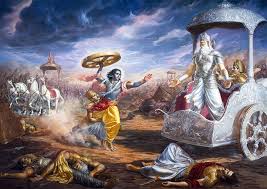
Understanding one’s righteous duty can be a personal and subjective journey. Here are some ways to explore and discover your righteous duty:
*Reflect on Your Values and Principles*
1. *Identify your core values*: What matters most to you in life? What do you stand for?
2. *Consider your principles*: What guides your decision-making and actions?
*Explore Your Roles and Responsibilities*
1. *Family and relationships*: What are your duties towards your family, friends, and community?
2. *Professional life*: What are your responsibilities in your job or profession?
3. *Social and environmental impact*: How do your actions affect the world around you?
*Seek Guidance and Inspiration*
1. *Spiritual or religious teachings*: Explore the teachings of your faith or spiritual tradition.
2. *Philosophical texts and literature*: Read works on ethics, morality, and philosophy.
3. *Role models and mentors*: Seek guidance from people you admire and respect.
*Practice Self-Reflection and Mindfulness*
1. *Meditate and reflect*: Regularly take time to reflect on your thoughts, actions, and motivations. 2. *Journaling*: Write down your thoughts, feelings, and insights to clarify your values and principles.
*Cultivate Empathy and Compassion*
1. *Put yourself in others’ shoes*: Try to understand different perspectives and experiences. 2. *Practice kindness and compassion*: Treat others with kindness, respect, and empathy.
Remember, understanding your righteous duty is a lifelong journey. Be patient, stay open-minded, and keep exploring.
What a profound and multifaceted question! The concept of “righteous duty” can be understood in various ways, depending on cultural, philosophical, and religious contexts. I’ll provide an overview, exploring its meaning, understanding, and challenges, along with examples and relevant locales.
*Defining Righteous Duty*
Righteous duty, also known as moral duty or righteous obligation, refers to the responsibility to act in accordance with moral principles, ethics, and values. It involves doing what is right, just, and fair, even when it’s challenging or unpopular. This concept is rooted in various philosophical and religious traditions, including Hinduism, Buddhism, Christianity, Islam, and others.
*Understanding Righteous Duty*
To understand righteous duty, consider the following aspects:
1. *Moral principles*: Familiarize yourself with fundamental moral principles, such as respect for human life, honesty, fairness, and compassion.
2. *Personal values*: Reflect on your personal values and what you consider important in life. This will help you understand what drives your sense of righteous duty.
3. *Cultural and social context*: Recognize that righteous duty can vary across cultures and societies. Be aware of the norms, customs, and laws that shape your community’s understanding of righteous duty.
4. *Self-reflection and introspection*: Regularly examine your thoughts, feelings, and actions to ensure they align with your moral principles and values.
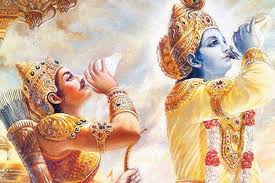
*Believing in Righteous Duty*
Believing in righteous duty involves:
1. *Conviction*: Develop a strong conviction in the importance of moral principles and values.
2. *Commitment*: Commit to upholding righteous duty in your daily life, even when faced with challenges or difficult decisions.
3. *Faith*: For those with religious or spiritual beliefs, faith can play a significant role in believing in righteous duty.
*Difficulties in Performing Righteous Duty*
Performing righteous duty can be challenging due to:
1. *Personal interests*: Conflicts may arise between personal interests and moral principles.
2. *Social pressures*: Societal expectations, peer pressure, or family obligations can make it difficult to uphold righteous duty.
3. *Fear and uncertainty*: Fear of consequences, uncertainty, or doubt can hinder one’s ability to perform righteous duty.
4. *Cultural and systemic barriers*: Systemic injustices, cultural norms, or institutional barriers can make it difficult to uphold righteous duty.
*Relevant Locales and Examples*
1. *India*: In Hinduism, the concept of “Dharma” (righteous living) is central to understanding righteous duty. The Bhagavad Gita, a Hindu scripture, emphasizes the importance of performing one’s duty (swadharma) without attachment to outcomes.
2. *Tibet*: In Tibetan Buddhism, the concept of ” Bodhisattva” (enlightened being) involves cultivating compassion and wisdom to benefit all sentient beings. This embodies the principle of righteous duty.
3. *United States*: The American Civil Rights Movement, led by figures like Martin Luther King Jr., exemplifies the struggle for righteous duty in the face of systemic injustice and social pressure.
4. *South Africa*: Nelson Mandela’s fight against apartheid and his commitment to reconciliation and forgiveness demonstrate the power of righteous duty in the face of overwhelming adversity.
In conclusion, righteous duty is a complex and multifaceted concept that involves understanding moral principles, personal values, and cultural contexts. Believing in and performing righteous duty can be challenging, but it is essential for creating a just and compassionate society. By examining various locales and examples, we can deepen our understanding of this vital concept.
Some notable individuals from India in each of the major categories/professionals of people are mentioned below:
*Unsung Heroes in Various Categories*
1. *Healthcare Workers*
1. *Dr. M. C. Modi*: Known as the “Messiah of the Poor,” Dr. Modi provided free medical care to thousands of patients in rural Karnataka.
2. *Dr. Prakash Amte*: A physician and social worker who dedicated his life to providing medical care to tribal communities in Maharashtra.
2. *Teachers and Educators*
1. *Rashmi Tiwari*: A teacher from Uttar Pradesh who educates underprivileged children and has been recognized for her innovative teaching methods.
2. *Abhijit Sinha*: Founder of the non-profit organization “Ektara,” which provides education to marginalized children in Jharkhand.
3. *Environmental Activists*
1. *Medha Patkar*: A renowned environmental activist who has fought against large-scale development projects that harm the environment and displace communities.
2. *Chandi Prasad Bhatt*: A pioneer of the Chipko Movement, which sought to protect the forests of Uttarakhand from logging and deforestation.
4. *Social Workers*
1. *Jockin Arputham*: Founder of the National Slum Dwellers Federation, which works to improve the lives of slum dwellers across India.
2. *Shantha Sinha*: A child rights activist who has worked tirelessly to protect children from exploitation and abuse.
5. *Farmers and Agricultural Workers*
1. *Bhaskar Save*: A pioneering farmer who developed innovative farming methods that prioritize sustainability and environmental conservation.
2. *Kavita Kuruganti*: A farmer and activist who advocates for sustainable agriculture and farmers’ rights.
6. *Volunteers and Charity Workers*
1. *Sindhutai Sapkal*: A social worker who has dedicated her life to caring for orphaned and abandoned children.
2. *Narayanan Krishnan*: Founder of the Akshaya Trust, which provides food and care to the homeless and elderly.
7. *Scientists and Researchers*
1. *Dr. Anil Kakodkar*: A nuclear physicist who played a key role in India’s nuclear energy program.
2. *Dr. Rajendra Pachauri*: A renowned climate scientist who served as the chairman of the Intergovernmental Panel on Climate Change (IPCC).
8. *Community Leaders*
1. *Bezwada Wilson*: A Dalit rights activist who has worked to eradicate manual scavenging and promote social justice.
2. *Sunitha Krishnan*: Co-founder of the non-profit organization Prajwala, which works to rescue and rehabilitate survivors of sex trafficking.
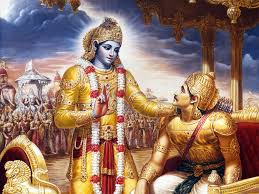
These individuals are just a few examples of the many unsung heroes in India who are making a positive impact in their respective fields.
You’re referring to the unsung heroes who make a significant impact in their respective fields, but may not receive the same level of recognition as political leaders or celebrities.
Here are a few examples of unsung heroes who deserve our appreciation:
1. *Healthcare Workers*: Nurses, doctors, and other medical professionals who work tirelessly to save lives and provide care to those in need.
2. *Teachers and Educators*: Dedicated individuals who shape young minds, provide guidance, and inspire future generations.
3. *Environmental Activists*: Passionate individuals and organizations working to protect our planet, conserve natural resources, and promote sustainability.
4. *Social Workers*: Selfless individuals who support vulnerable communities, provide aid, and advocate for social justice.
5. *Farmers and Agricultural Workers*: Hardworking individuals who cultivate and harvest food, often in challenging conditions, to feed millions of people.
6. *Volunteers and Charity Workers*: Individuals who donate their time, energy, and resources to help those in need, often without seeking recognition.
7. *Scientists and Researchers*: Brilliant minds working behind the scenes to advance medical knowledge, develop new technologies, and improve our understanding of the world.
8. *Community Leaders*: Local heroes who bring people together, organize initiatives, and drive positive change in their neighborhoods.
These individuals, among many others, deserve our appreciation and recognition for their selfless contributions to society.
Would you like to know more about any specific group or individual?
Here are 3 important among Indian leaders who performed their duties for the benefit of people.
- *Sardar Vallabhbhai Patel*: Unified India by integrating princely states, strengthening national unity.
- *B.R. Ambedkar*: Chief architect of the Indian Constitution, fought for social justice and equality.
- *Atal Bihari Vajpayee*: Prime Minister who introduced economic reforms and improved infrastructure.
These leaders have left a lasting impact on India’s history and development.

That’s a profound question! While it’s challenging, it’s not impossible for employees to focus on the process and duty without attachment to the result. This mindset is rooted in the concept of “detachment” or “vairagya” in Eastern philosophies like Buddhism and Advaita Vedanta.
In the corporate world, cultivating detachment from results doesn’t mean being indifferent or unaccountable. Rather, it involves:
1. *Focusing on what you can control*: Concentrate on the tasks, processes, and decisions within your sphere of influence.
2. *Letting go of outcome expectations*: Recognize that results are often influenced by factors beyond your control, such as market trends, team dynamics, or external circumstances.
3. *Embracing a growth mindset*: View challenges and setbacks as opportunities for growth, learning, and improvement.
4. *Prioritizing effort over outcome*: Focus on delivering high-quality work, rather than fixating on specific results or targets.
5. *Cultivating mindfulness and self-awareness*: Regularly reflect on your thoughts, emotions, and actions to maintain a balanced perspective.
By adopting this mindset, employees can:
– Reduce stress and anxiety related to meeting targets
– Increase focus and productivity
– Improve resilience and adaptability
– Enhance creativity and problem-solving skills
– Develop a greater sense of purpose and fulfillment
However, it’s essential to note that this approach may require:
– Open communication with managers and team members about goals, expectations, and challenges
– A supportive work environment that encourages experimentation, learning, and growth
– A willingness to adapt and adjust goals and expectations as needed
In conclusion, while it’s challenging, it’s possible for employees to focus on the process and duty without attachment to the result. By cultivating detachment, embracing a growth mindset, and prioritizing effort over outcome, employees can find greater fulfillment, productivity, and success in their work.
https://nimblefoundation.org/
https://nimblefoundation.org/our-clients.html
https://www.linkedin.com/in/satish-kakri-17224417/
Thanks for reading.

